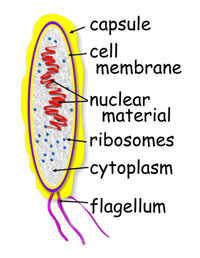New research has shown that the incidence of tissue damage bacterial infection necrotizing fascitits growing in New Zealand. National media were quick to announce an increase in the incidence of carnivorous bacteria. Published in the magazine

infection, shows that necrotizing fascitits increased from less than 10 cases per year in 1990 to more than 70 cases per year in 2006. Necrotizing fastsyyt severe bacterial infection usually caused by group A streptococcus (GAS). This leads to rapid destruction of soft tissues, with most affected people in need of major surgery, and sometimes amputations to prevent the spread of infection. Although the authors of the study can not say exactly what cases the state is becoming more and more, they suggest that the greater virulence of bacterial infection, decreased resistance due to other chronic diseases and other environmental factors could play a role. You can read the full press release from the University of Otago, Wellington. The authors told the media Research Center, they see some data to identify potential risk factors, such as the use of anti-inflammatory drugs that suppress the immune and disease. Investigation of flesh bacteria has received much media attention throughout New Zealand. Media treatment of such descriptive name was not lost on most authors, who stated in his article that the term was a sensation in the press for over ten years. Media Coverage: TV3 News: Post Dominion: Otago Daily strattera prescription Times: Radio New Zealand: Stuff. cooperation. New Zealand:
Newstalk ZB: New Zealand Herald:
No comments:
Post a Comment